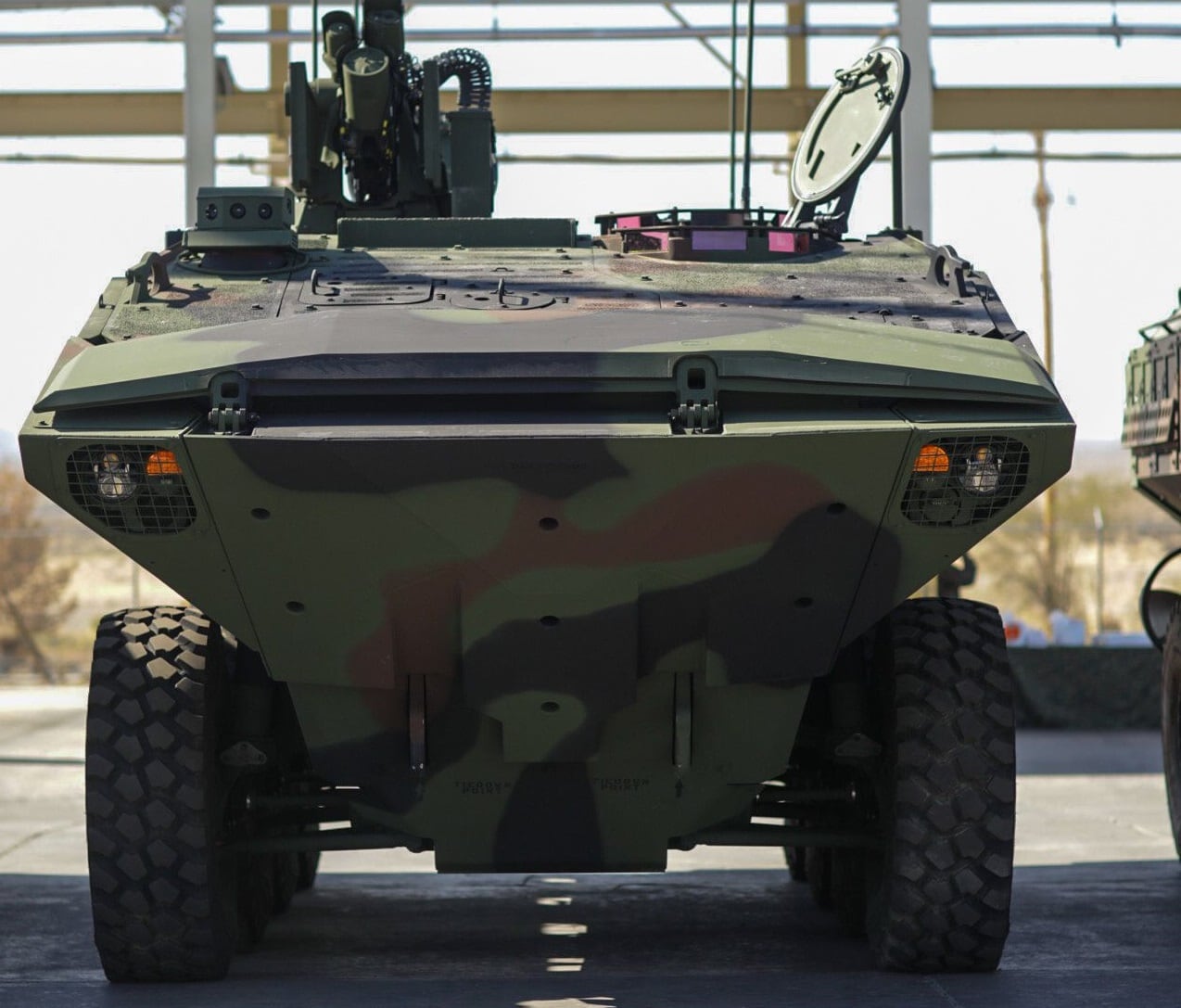The Marine Corps has halted waterborne operations for its Amphibious Combat Vehicle as of Sept. 3 due to an issue identified with its towing mechanism, officials said.
In a safety message shared with Marine Corps Times, service spokesman Maj. Jim Stenger said the Corps made the decision “out of an abundance of caution.”
“The Marine Corps is working on identifying and fixing the root cause of the problem,” Stenger added. “Realistic training is a vital component of readiness, and the Marine Corps is committed to ensuring Marines train under the safest conditions possible; this includes ensuring the functionality of vehicles and equipment.”
RELATED

The Marines received their first ACVs in late 2020. The vehicle is a replacement for the Vietnam War-era Amphibious Assault Vehicle, or AAV. The first ACVs went to Delta Company 3rd Assault Amphibian Battalion in Twentynine Palms, California.
Waves of ACVs then flowed into the Marine fleet earlier this year, with plans at the time to deliver shipments every two to three months, starting in January.
The ACV is not the vehicle in which eight Marines and a Navy corpsman died in July 2020 during amphibious operations. That was the older AAV.
The ACV came after the Expeditionary Fighting Vehicle was canceled in 2011. More than $3 billion was spent on that program before it was halted, according to a 2020 Congressional Research Service report.
The Corps resurrected the AAV replacement in March 2014. The service selected BAE Systems to produce the ACV in 2018.
That same year, the Director, Operational Test and Evaluation annual report showed that the ACV was successful in 15 of 16 missions.
The report made the following recommendations:
- Modify the infantry troop commander’s station to make it easier to move between the hatch and seat.
- Assess the capability of all existing Marine Corps recovery assets to recover the ACV.
- Investigate options for preventing damage to steering/suspension when encountering battlefield debris, such as concertina wire.
A subsequent 2021 report from the DOTE showed that the ACV did not “meet its 69-hour mean time between operational mission failures threshold.”
Todd South has written about crime, courts, government and the military for multiple publications since 2004 and was named a 2014 Pulitzer finalist for a co-written project on witness intimidation. Todd is a Marine veteran of the Iraq War.





